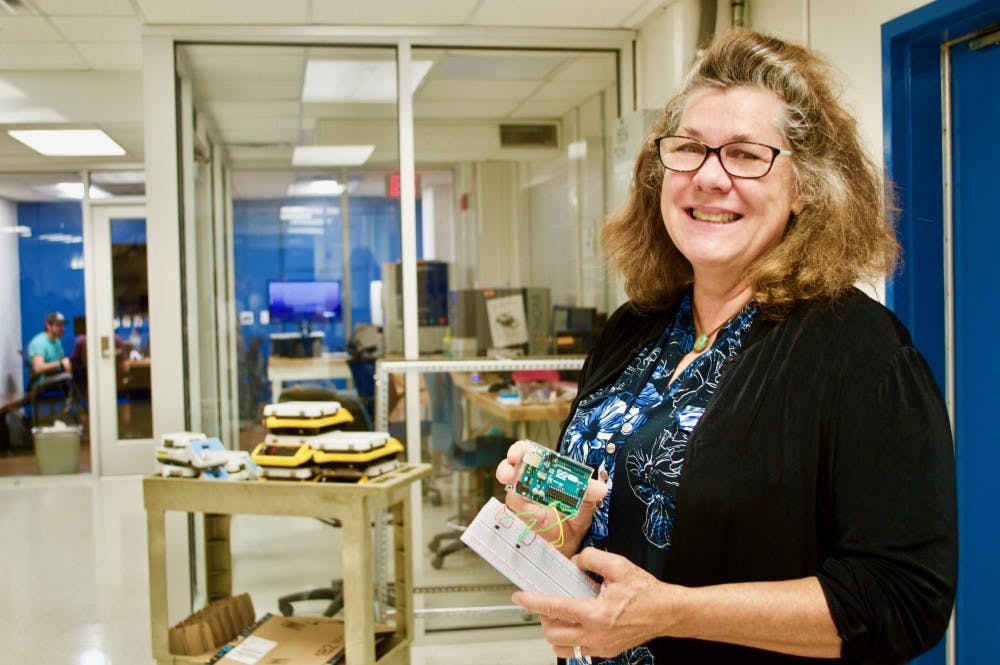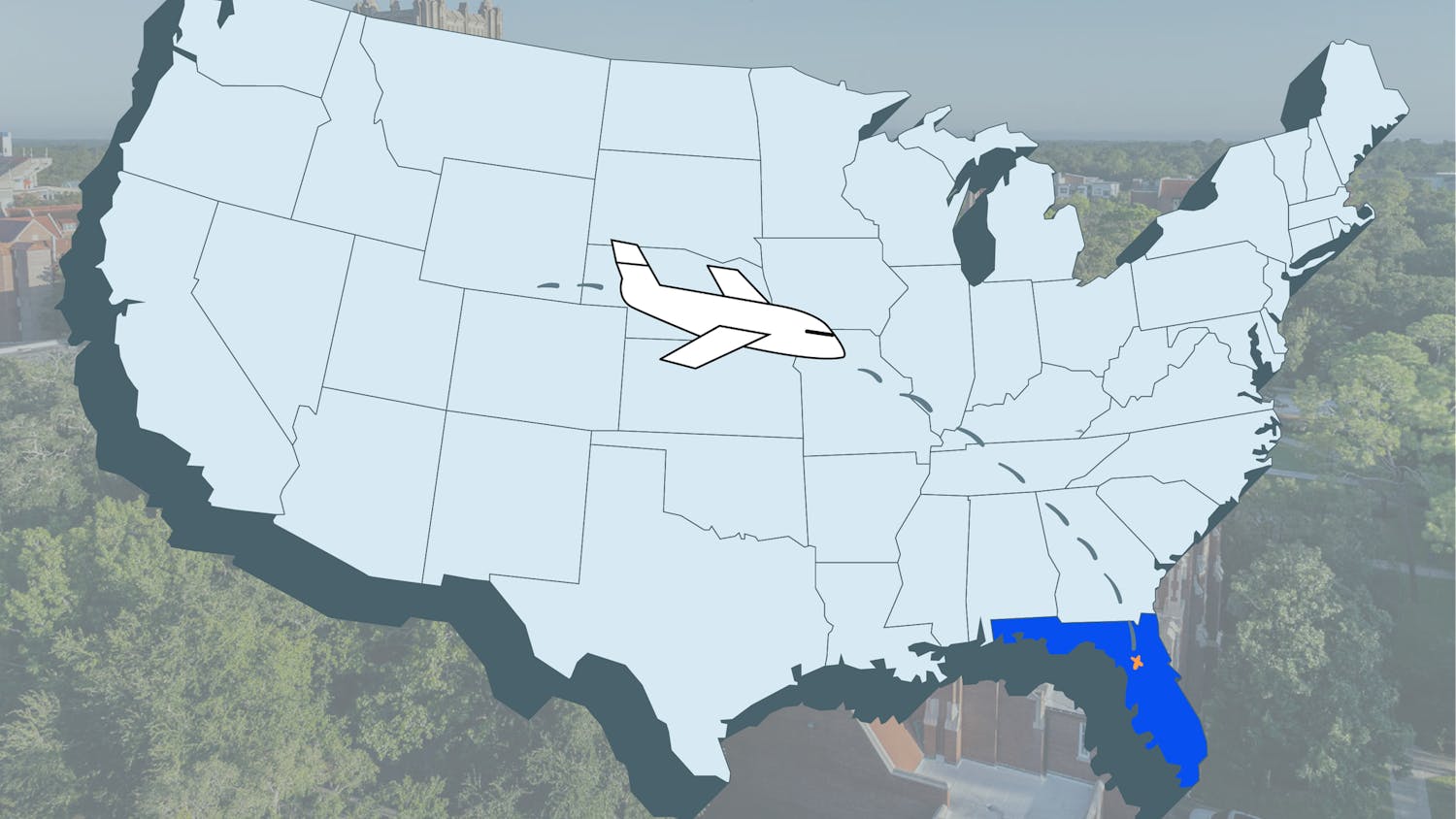Starting next year, 11 counties across Florida will take part in a program that will change the way science, math, engineering and technology are taught in public schools.
In September, the U.S. Department of Education awarded a $5 million Supporting Effective Educator Development grant for the program to Nancy Ruzycki, a UF lecturer and the director of undergraduate laboratories at the Herbert Wertheim College of Engineering Department of Materials Science and Engineering.
The program is called Engaged Quality Instruction through Professional Development. It aims to teach more than 250 teachers from 11 districts across the state to educate students in kindergarten through ninth grade to use higher level technology, such as sensors and probes within their education, Ruzycki said.
The goal of the program is to transition teachers from using basic technology such as thermometers and powerpoints to more advanced equipment, Ruzycki said. This will allow schools to implement a more comprehensive use of core concepts in their curriculum.
“Even if students in elementary don’t wind up becoming STEM college graduates, they’re still gonna have a better understanding of how things work in the world,” Ruzycki said.
Counties including Hillsborough, Palm Beach and Sarasota were chosen for the program because they are not being helped by a federal grant and hold 30 percent of the schools in the list of the 300 lowest performing schools created by the Florida Department of Education, Ruzycki said.
To determine the efficacy of the program for the first two years, Ruzycki will be teaching 100 “intervention” teachers, who will learn how to use the advanced technology, she said. Then, University of North Carolina at Greensboro researchers will compare those teachers to 150 control teachers, who will not be taught with the new technology.
In the third and final year, intervention teachers will train control teachers to use the equipment in the classroom.
Intervention teachers can earn up to $5,400 annually if 240 hours are put into the program, and control teachers can earn up to $1,200 a year, all of which are funded by the grant, Ruzycki said. Any teacher in the participating can apply for the program. Coaches, who will help oversee the program, will also be included and will receive payment.
“I spent a lot of time in failing schools, and I realized teachers need to have professional development support to learn how to embed technology into their lesson,” she said. “It’s not that they’re not willing, they just need help.”
The UF Board of Trustees and the engineering college will disperse $3.7 million to Ruzycki over the course of three years to spend on the program, and the she said.
The university, along with public schools in the receiving counties, will be responsible for providing about 30 percent of the funding because it is a matching grant. To accomplish this, UF, the districts and technology companies, like Vernier and Sesto, will be donating free equipment and instructors.
Having a grant like this one is positive for the engineering college, said Diane Choate, a UF engineering college spokesperson. The long term goal is to teach STEM to teachers so that Florida students may one day take over jobs in the evolving technology workforce.
“It’s a wonderful thing because if our economy and the global economy is beginning to depend more on STEM,” Choate said. “I would feel that you would want people who are well educated in STEM to be teaching and the students to be learning.”
Contact Samuel Schaffer at sschaffer@alligator.org Follow him on Twitter @sa5schaffer.
Nancy Ruzycki, a UF lecturer and the director of undergraduate laboratories at the Herbert Wertheim College of Engineering Department of Materials Science and Engineering, holds Arduinos, an type of open-source electronic, to create lab experiments involving data collection and analysis. Courtesy to The Alligator.






